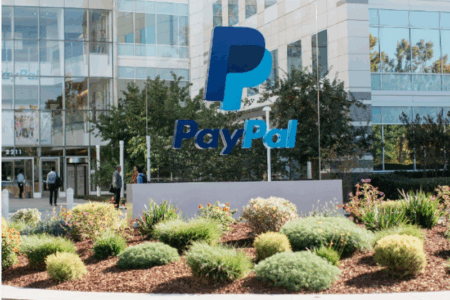Singapore has handled the pandemic well, thanks to the decisive actions and economic support from the government.
However, Prime Minister Lee Hsien Loong has recently warned that Singapore should be prepared for more economic challenges ahead.
Singapore’s core inflation has hit 3.3% in April, a decade-high, and global growth may become weaker with the advent of the Russia-Ukraine war and supply chain disruptions.
A recession could be on the cards within the next two years, he cautioned.
An economic downturn is bad news for businesses as it signals lower demand for goods and services, thus crimping revenue and profits.
As an investor, there’s the prospect of your investments reporting poorer earnings while also paying out fewer dividends.
What’s the best course of action?
Should you sell now before things get worse, or hold on to your positions through the recession?
Getting it right, twice
It’s tempting to sell out now and then decide to buy again when stocks become much cheaper.
The idea certainly sounds simple, but the execution is anything but easy.
First off, you have to determine if share prices are indeed going to continue plunging should economic conditions worsen.
Assuming they do, you then need to decide when to jump back in again once the recession is over.
In short, you need to get it right not once, but twice.
If you sell your entire portfolio now and sit in cash, it’s tough to know exactly when to start dipping your toes back in.
Many investors have missed the boat completely and been left high and dry when share prices suddenly surge.
Remember that the stock market is never entirely in step with the economy, with share prices usually moving ahead of the economy by three to six months.
Hence, predicting when share prices are going to recover is, at best, a wild guess.
As the saying goes — time in the market is a better strategy than timing the market.
Of course, this strategy of staying in the market works best if you’re vested in strong and stable businesses, which brings me to my next point.
Been there, done that
Not all businesses experience the same effects from an economic downturn.
Larger, diversified blue-chip businesses have a better track record of getting through recessions relatively unscathed.
Companies that have a strong competitive edge and generate healthy amounts of cash flow also stand a better chance of survival.
Take bourse operator Singapore Exchange Limited (SGX: S68), or SGX.
The group has a natural monopoly and has continued paying out dividends through the Great Financial Crisis in 2008-2009.
Conglomerates such as Keppel Corporation Limited (SGX: BN4) and Haw Par Corporation Limited (SGX: H02) have also weathered crises before without being adversely impacted.
And let’s not forget Singapore’s largest bank, DBS Group (SGX: D05).
The lender has gone through numerous economic cycles and has grown stronger through the years, reporting a record profit for its latest fiscal 2021.
Dividends continue to flow
History has shown that many companies, including REITs, can continue to pay out dividends even through a recession.
Having a robust business model, quality assets and competent management are important attributes for such businesses.
Both Suntec REIT (SGX: T82U) and Parkway Life REIT (SGX: C2PU) continued paying out distributions throughout the GFC, and also during the previous recession in 2020.
Vehicle inspection company VICOM Limited (SGX: WJP) has also continued paying out dividends throughout 2008-2009, and for 2020 and 2021.
Get Smart: Don’t be rash and have enough cash
The advice here is not to act rashly and sell out your portfolio in a panic.
As unpleasant as they are, recessions are a common feature of mature economies and the government also stands ready to support the economy and livelihoods should conditions deteriorate further.
The last two years have shown us what the government is ready to do to help the economy as it drew on S$37 billion in reserves to keep up public health expenses.
If you build a portfolio of strong companies with rock-solid business models and good prospects, you need not worry too much.
However, you do need to ensure you have sufficient cash to tide through the recession.
It’s also useful to keep extra cash handy to take advantage of attractive opportunities should stock prices get even cheaper.
This could be the fastest way to jump from a “newbie” investor to a seasoned pro. Our beginner’s guide shows everything you need to know to buy your first stock and beyond. Click here to download it for free today.
Follow us on Facebook and Telegram for the latest investing news and analyses!
Disclaimer: Royston Yang owns shares of DBS Group, Singapore Exchange Limited, VICOM and Suntec REIT.




